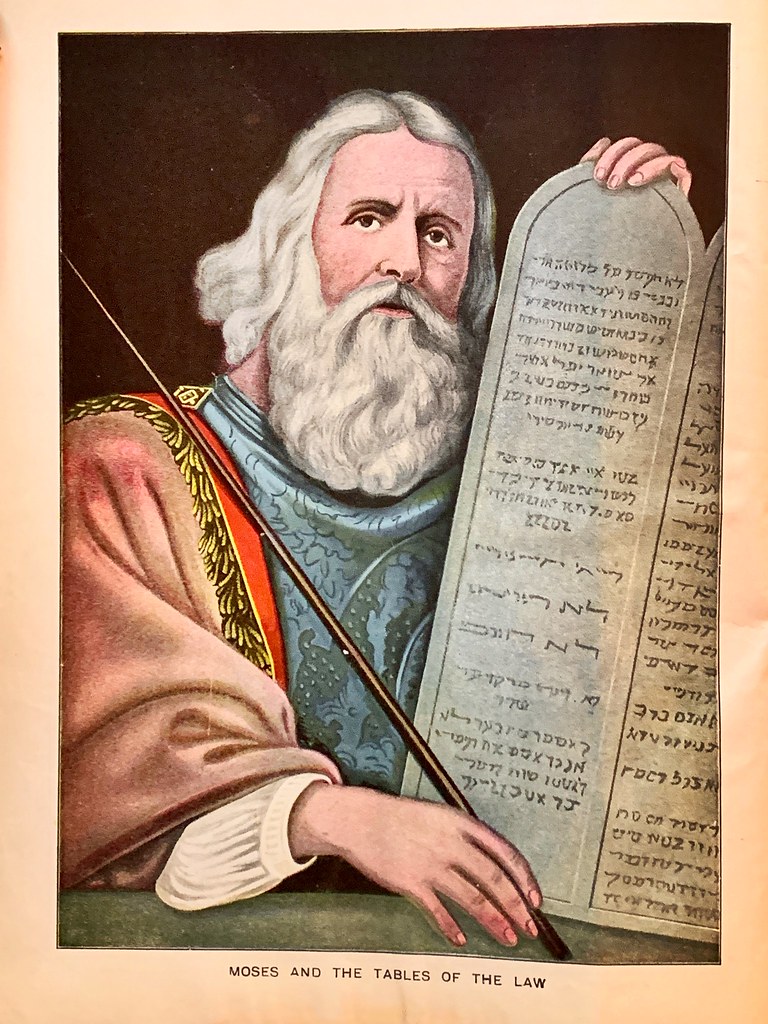Introduction
Psalm 36 is a poetic composition attributed to King David, known for his deep love and devotion to God. This psalm serves as a contrast between the wickedness of man and the righteousness of God. In exploring the themes of divine love and messianic significance, we gain insights into the nature of God’s love and His redemptive plan for humanity.
Psalm 36 opens with a reflection on the wickedness of humanity and the deceitful nature of sin.The psalmist describes the wicked as having no fear of God and being blinded by their own self-righteousness. They flatter themselves, failing to see the destructive path they are on, and do not abhor evil. In contrast, the psalmist acknowledges the goodness and faithfulness of God. They recognize that God’s love is steadfast, reaching to the heavens, and His faithfulness extends to the clouds. The psalmist also acknowledges that God’s righteousness is like the great mountains, unshakable and enduring. This contrast sets the stage for the exploration of divine love and messianic significance in the following sections.
Overview of Psalm 36
Psalm 36 is a profound reflection on the nature of God’s love and faithfulness. It is a poetic composition that uses vivid imagery and metaphors to convey its message. The psalm is attributed to King David, who was known for his deep connection with God. As a shepherd, he had ample time to observe the wonders of nature and contemplate the greatness of God. These experiences and reflections are beautifully expressed in this psalm.
The composition of Psalm 36 consists of contrasting themes, highlighting the wickedness of man and the righteousness of God. The psalmist recognizes the depravity of the wicked, who have no fear of God and are blinded by their own self-righteousness. In contrast, the psalmist acknowledges the goodness and faithfulness of God, whose love is boundless and His righteousness is unshakable. This interplay between the wickedness of man and the righteousness of God sets the stage for a deeper exploration of divine love and messianic significance.
The Theme of Divine Love in Psalm 36
The theme of divine love is central to Psalm 36. The psalmist portrays God’s love and mercy as boundless, reaching to the heavens. They emphasize the preciousness of God’s lovingkindness, highlighting the abundance and richness of His love. The psalmist uses vivid and powerful imagery to describe God’s love. One such example is found in verse 8, where the psalmist declares, “They feast on the abundance of your house; you give them drink from your river of delights”. This image of feasting and drinking from God’s river of delights conveys the satisfaction and joy that comes from experiencing His love. It portrays God’s love as a source of nourishment and delight, providing everything we need to flourish and be satisfied.
Furthermore, the psalmist describes God’s love as a fountain of life, emphasizing its life-giving and life-sustaining qualities. Just as a fountain continuously pours forth water, God’s love is ever-flowing and abundant. It is the source of true life and fulfillment. The psalmist invites the reader to find refuge and satisfaction in God’s house, experiencing the depths of His love. This imagery of seeking refuge and finding satisfaction in God’s presence underscores the transformative power of His love in our lives.
The Messianic Significance of Psalm 36
Psalm 36 holds messianic significance, pointing towards the coming of the Messiah. While the psalm itself does not explicitly mention the Messiah, some interpretations suggest that certain verses foreshadow Jesus Christ and His redemptive work. The psalm can be seen as a prophetic expression of the future reign of the Messiah.
One interpretation of the messianic significance of Psalm 36 is that it anticipates the establishment of a righteous ruler who will bring justice and righteousness to the world.The psalmist acknowledges that God’s righteousness is unshakable, like the great mountains. This foreshadows the coming of a righteous ruler who will establish justice and righteousness on the earth. The psalmist expresses confidence that the wicked will ultimately be judged by God. This anticipation of divine judgment aligns with the belief in a future Messiah who will bring about justice and judgment.
Another interpretation is that certain verses in Psalm 36 reflect the character and redemptive work of Jesus Christ. For example, verse 9 says, “For with you is the fountain of life; in your light we see light”. This verse points to the Messiah as the source of life and light. Jesus Himself declared, “I am the light of the world” and “Whoever believes in me, as the Scripture has said, ‘Out of his heart will flow rivers of living water'”. The imagery of the fountain of life and the light connects to Jesus as the giver of spiritual life and illumination.
These interpretations and the messianic significance of Psalm 36 remind us of the redemptive plan of God. The psalmist’s anticipation of a righteous ruler and the imagery of the fountain of life and light point to the coming of Jesus Christ and His transformative work in the world.
Biblical References and Interpretations
Psalm 36 can be further understood in the context of other biblical passages that highlight God’s love and faithfulness. Various commentators offer interpretations of Psalm 36, emphasizing different aspects of divine love and righteousness. Studying this psalm alongside other biblical texts provides a richer understanding of its themes.
One biblical reference that provides insight into the theme of divine love in Psalm 36 is found in Psalm 103:11, which says, “For as high as the heavens are above the earth, so great is his love for those who fear him”. This verse echoes the imagery of God’s love reaching to the heavens in Psalm 36, emphasizing the boundless and immeasurable nature of God’s love. It underscores the depth and extent of God’s love for those who revere Him.
Another biblical reference that sheds light on the messianic significance of Psalm 36 is found in Isaiah 9:6, which prophesies the coming of the Messiah: “For to us a child is born, to us a son is given, and the government will be on his shoulders. And he will be called Wonderful Counselor, Mighty God, Everlasting Father, Prince of Peace”. This verse speaks of the coming Messiah who will establish a righteous and just reign. It aligns with the anticipation of a righteous ruler in Psalm 36 and further emphasizes the messianic nature of this psalm.
By examining these biblical references and interpretations, we gain a deeper understanding of the themes present in Psalm 36. We see how the psalm connects to the broader narrative of God’s love and faithfulness throughout the Bible and how it points to the coming of the Messiah.
The Deceitfulness of Sin and the Delightfulness of God
Sin is a pervasive force that deceives and leads individuals astray from God’s righteous path. Psalm 36 highlights the stark contrast between the wickedness of sin and the delightfulness of God’s character. Understanding the fear of God and His holiness helps discern the deceitfulness of sin.
Sin deceives the sinner through flattery, leading them away from the path of righteousness. It blinds individuals to the truth and entices them with false promises of pleasure and fulfillment. The psalmist recognizes the deceitful nature of sin and its ability to lead people astray from God’s righteous path.
In contrast, the psalmist acknowledges the delightfulness of God’s character and the joy found in His presence. They emphasize the fear of God and His holiness as essential for discerning the deceitfulness of sin. When we have a proper understanding of God’s character and His righteous standards, we are better equipped to resist the temptations of sin. The psalmist’s recognition of the delightfulness of God’s character serves as a reminder that true satisfaction and joy are found in a relationship with Him.
An example of the deceitfulness of sin and the delightfulness of God can be seen in the life of George Muller, a man known for his deep joy in God. Muller found happiness in God through spending time in His Word and prayer. He understood the deceitfulness of sin and the need to seek delight in God alone. Muller’s life serves as an example of the transformative power of delighting in God and finding true joy in His presence.
#Messianicprophecy #Psalm36interpretation #Divinedeliverance #Messianichope #Davidiclineage #Biblicalprophecy #JesusasMessiah #OldTestamentprophecy #Messianicfulfillment #SonofGod #Messianicanticipation #Divineprotection #WorshipoftheMessiah #TheLord’sAnointed #PropheticPsalms #SalvationthroughtheMessiah
God as the Fountain of Life and Light
The imagery of God as a fountain in Psalm 36 symbolizes His role as the source of life and blessings. Seeking God and being in His presence allows one to understand truth and find light. Trusting in God enables individuals to see and enjoy His illuminating light.
The psalmist describes God as the fountain of life, emphasizing His role as the source of all life and blessings. Just as a fountain continuously pours forth water, God’s love and blessings are ever-flowing and abundant. It is through a relationship with Him that we find true life and fulfillment. The psalmist invites the reader to find refuge and satisfaction in God’s house, experiencing the depths of His love. This imagery of seeking refuge and finding satisfaction in God’s presence underscores the transformative power of His love in our lives.
Furthermore, the psalmist recognizes that in God’s light, we see light. This imagery speaks to the idea that God is the source of all truth and wisdom. By seeking God and abiding in His word, we gain understanding and illumination. Trusting in God enables individuals to see and enjoy His illuminating light. When we place our trust in Him, He guides us on the path of righteousness and reveals His truth to us. Just as a light dispels darkness, so God’s light dispels the darkness of sin and ignorance.
One example of finding light in God’s presence is seen in the life of David, the author of this psalm. David sought God’s guidance and wisdom throughout his life. In Psalm 119:105, he declares, “Your word is a lamp for my feet, a light on my path”. David understood that true light and guidance come from God alone. He found illumination and direction in God’s presence and relied on His light to navigate through life’s challenges.
God’s Righteousness and Judgments
Psalm 36 emphasizes the righteousness of God, comparing it to majestic mountains. The psalmist acknowledges the depth and extent of God’s judgments. God’s righteousness and judgments are portrayed as awe-inspiring and just.
The psalmist describes God’s righteousness as being like the great mountains. This imagery conveys the idea that God’s righteousness is unshakable and enduring. It is a firm foundation that can be relied upon. Just as mountains inspire awe and reverence, so does God’s righteousness. His righteousness serves as a standard of justice and righteousness in the world.
The psalmist also acknowledges the depth and extent of God’s judgments. They recognize that God’s judgments are just and righteous. His judgments are not arbitrary but are rooted in His perfect wisdom and righteousness. The psalmist trusts in His judgments, knowing that He will ultimately bring justice to the wicked.
One example of God’s righteousness and judgments can be seen in the story of Noah and the flood. In Genesis 6-8, God sees the wickedness of humanity and brings a flood to judge the wicked, sparing only Noah and his family. This story exemplifies the righteous judgment of God and His commitment to upholding justice.
Taking Refuge in God’s Lovingkindness
Psalm 36 invites individuals to take refuge in the shadow of God’s wings, experiencing His lovingkindness. The psalmist recognizes the abundance of God’s provisions and the satisfaction found in His house. Finding refuge in God’s lovingkindness brings comfort and protection.
The psalmist invites individuals to take refuge in the shadow of God’s wings. This imagery conveys a sense of safety and protection. It speaks to the psalmist’s trust in God’s lovingkindness and His faithfulness to His people. Just as a bird protects its young under its wings, God offers refuge and protection to those who seek Him.
The psalmist also recognizes the abundance of God’s provisions. They acknowledge that God provides for the needs of His people, satisfying them with the abundance of His house. This speaks to the psalmist’s confidence in God’s provision and His ability to meet all of their needs. It reminds us that God is not only a loving and compassionate God but also a generous provider.
Finding refuge in God’s lovingkindness brings comfort and protection. When we seek refuge in Him, we find solace and peace. We experience His love and faithfulness in a tangible way, knowing that He is with us and cares for us. The psalmist’s invitation to take refuge in God’s lovingkindness serves as a reminder that we can find comfort and security in our relationship with Him.
Praying for God’s Love and Righteousness
The psalmist’s prayer for a continuing experience of God’s love and righteousness reflects their deep desire for an ongoing relationship with God. They recognize the need for God’s love and righteousness in their lives and continually seek His presence and guidance. The psalmist also seeks protection from the proud and wicked through prayer. They express confidence that the workers of iniquity will ultimately be judged by God.
The psalmist prays for a continuing experience of God’s love and righteousness. They understand that their relationship with God is dynamic and ever-growing. They know that they need God’s love and righteousness to sustain and guide them. Through prayer, they invite God to continually pour out His love and righteousness upon them.
The psalmist also seeks protection from the proud and wicked through prayer. They recognize the presence of evil in the world and the need for God’s intervention. They trust in God’s justice and believe that He will ultimately bring about judgment on the workers of iniquity.
This prayer for God’s love, righteousness, and protection reflects the psalmist’s deep dependence on God. It is a reminder that we, too, can bring our needs and concerns before God in prayer, knowing that He hears and answers our prayers according to His perfect will. The psalmist’s confidence in God’s judgment serves as an assurance that justice will prevail in the end.
Conclusion
Psalm 36 is a testament to the boundless love and righteousness of God. It explores the themes of divine love, the deceitfulness of sin, and the delightfulness of God’s character. This psalm also holds messianic significance, pointing towards the coming of the Messiah. Through its rich imagery, heartfelt prayers, and profound reflections, Psalm 36 invites readers to experience the fountain of divine love and find refuge in God’s lovingkindness. As we meditate on the words of this psalm, may we be reminded of the boundless love and faithfulness of our God and find comfort and satisfaction in His presence.



